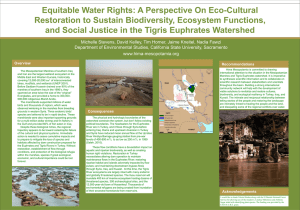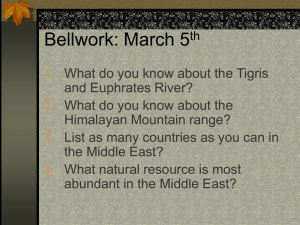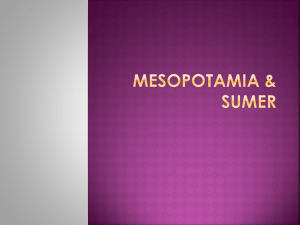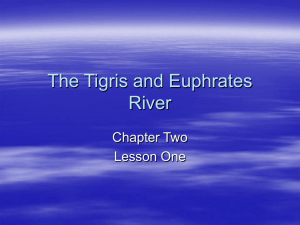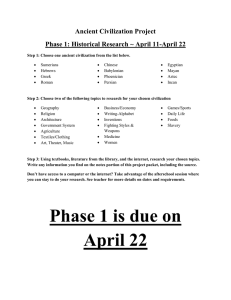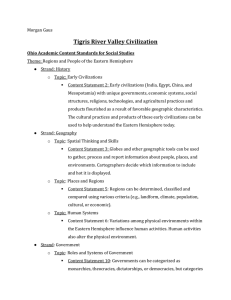Civilization: a group of people who have reached
advertisement
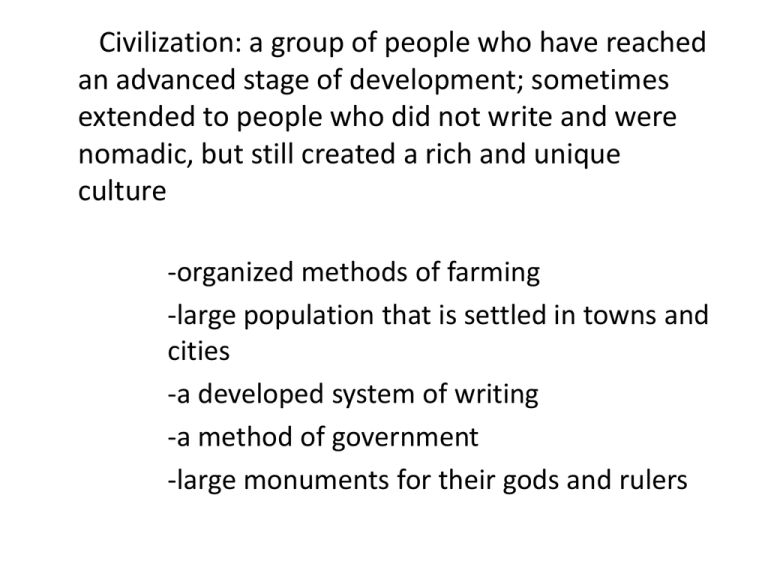
Civilization: a group of people who have reached an advanced stage of development; sometimes extended to people who did not write and were nomadic, but still created a rich and unique culture -organized methods of farming -large population that is settled in towns and cities -a developed system of writing -a method of government -large monuments for their gods and rulers Spiritual Beginnings (p. 16) Middle East is often called the “cradle of civilization” From their interactions, we have the basic elements of civilization: law, commerce, arts, religion, education, and literature River Cultures: Nile, Tigris, and Euphrates -provided water for people, livestock, agriculture -easy travel (promoting commerce and social interaction) Mesopotamia • • • • • Known as “the land between two rivers” Between the Tigris & Euphrates Present day Iraq, Turkey, and Syria First city arose; city-state City-State had its own ruler, army, and patron deity • Ziggurat built in its honor • Sumerians –recorded history began; invented writing around 3,000 B.C. • Akkadians –unified the city-states of Sumer and unified them; first empire • Babylonians –est. one of the 1st sets of laws; the Code of Hammurabi • Assyrians- ruthless in battle; destroyed the kingdom of Israel • People & Society: upper class, common folk, slaves, and women
